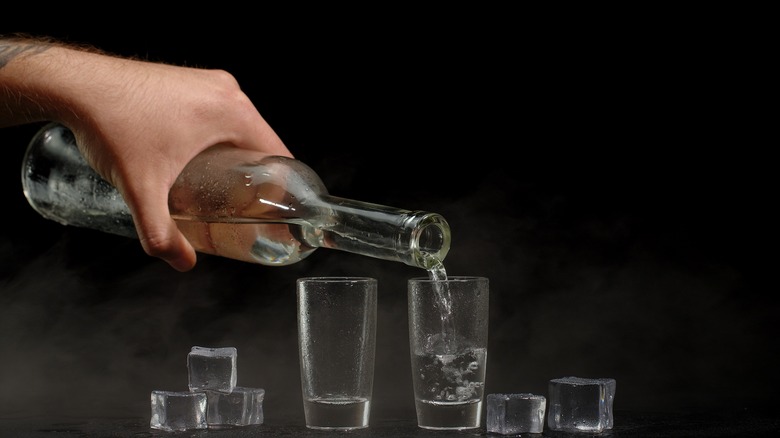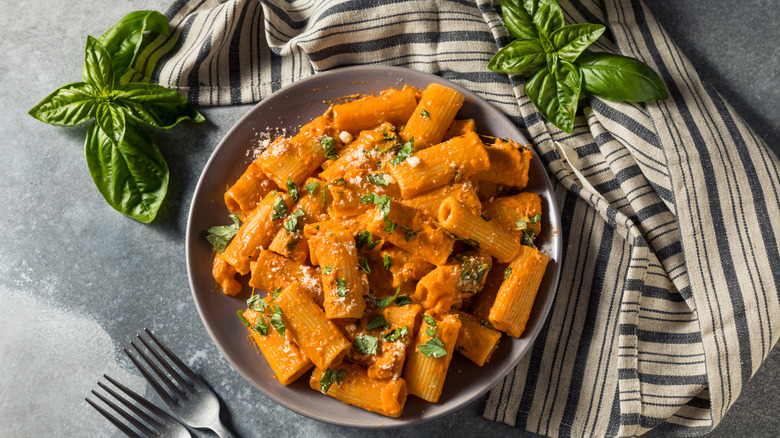How The Concentration Of Vodka Impacts The Aromatics Of A Dish
Tomato vodka sauce is a rich, velvety creation of only three core ingredients: tomatoes, vodka, and cream. Popularized throughout the U.S., it's unclear whether or not it's originally Italian, but there are numerous origin stories. Some cite its creation occurred when a Roman chef hoped to promote a vodka brand; others say that Chef Luigi Franzese created it in his New York City restaurant Orsini, according to Paesana.
While the spirit adds a slight bite to the sauce, its inclusion is not primarily for its aroma. Vodka flavor is soft and nuanced, virtually indistinguishable when combined with other ingredients. Instead, the alcohol component acts as an emulsifier, binding tangy tomatoes with the fatty cream sauce. A superb solvent (hence the popularity of alcohol infusions), vodka amplifies the added flavors, creating a more flavorful sauce (via St. Louis Magazine). Yet how does the concentration impact the effect? Let's open a bottle and dive into the specifics.
Small concentrations of vodka amplify the flavor of a dish
A significant contributor to alcohol's heightened aromatics — when consumed neat and in prepared food — is its ease of evaporation. Just a dash, like when deglazing a pan, does wonders for opening the flavors in conjunction with the booze's taste. Such a technique works with other applications, too, like a boozy marinade. However, moderation is always key. Add too much vodka (more than 5% of a dish after cooking), and the spirit's flavors overwhelm the food, reports Fine Cooking.
Over at Serious Eats, J. Kenji López-Alt methodically tested various vodka concentrations in tomato sauce. The results showed that cooking the sauce post vodka addition was necessary; a 4% ABV without heat tasted too alcoholic. His ideal sauce contained 2% ABV, simmered to a lower concentration. This flavorful result evinced that a sauce with 5% of its volume in vodka (before cooking) was the ideal concentration.
Drawing out vodka's effects takes a good pour, but watch out for too much. And don't worry about the inebriating effects. While the alcohol doesn't evaporate completely, the sauce doesn't contain enough to get you drunk.

